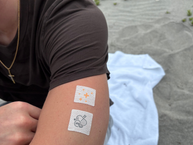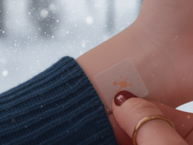Coenzyme Q10, or CoQ10, is an antioxidant that’s in every cell in your body. It’s in cell and mitochondrial membranes, which are fatty parts of cells.
CoQ10 is associated with energy production because it’s in cells’ mitochondria, which generate the most energy. It may also be an anti-inflammatory compound. Plus, it may be involved in maintaining proper pH, or acidity, around lysosomes, which help digest cellular waste.
Sources of Coenzyme Q10
Your body makes CoQ10, and healthy individuals don’t need to get it from the diet. However, it’s in a lot of foods, such as the following.
- Chicken, beef, and fish.
- Nuts, peanuts, and seeds.
- Eggs.
- Fruit.
- Vegetables.
- Vegetable oils.
Benefits of Coenzyme Q10*
There has been a lot of research on CoQ10 and its roles in the body. These are some areas that have been looked at.
- Congestive heart failure: CoQ10 may help reduce symptoms.
- Blood pressure: CoQ10 may help lower blood pressure.
- Diabetes: CoQ10 may help lower risk of heart disease by lowering “bad” LDL cholesterol and total cholesterol levels.
- Migraines: CoQ10 is an anti-inflammatory compound, which gives it potential for helping reduce symptoms of migraines.
- Alzheimer’s and Parkinson’s disease: CoQ10 is an antioxidant and anti-inflammatory. Both of these are implicated in Alzheimer’s and Parkinson’s disease.
Since CoQ10 is involved with energy production in cells, some people believe it may boost physical performance in athletic events such as endurance events or power events.
Should You Take Coenzyme Q10?
You might benefit from taking CoQ10 if you have low levels in your body. You’re unlikely to be severely deficient unless you have a genetic disorder that prevents your body from making it properly.
However, levels decrease as you get older, since your body is less able to make it. You are also likely to have lower levels of CoQ10 if you have certain health conditions, such as the following.
- Heart disease
- Diabetes
- Cancer
- Alzheimer’s disease
- Parkinson’s disease
It also seems as though people on statins may have fewer side effects when they take CoQ10, though that’s not certain. Statins often cause muscle pain and weakness.
It’s hard to know for sure if you are deficient in CoQ10. Blood levels of CoQ10 may be normal, even if levels in your body’s cells are low. If you have a condition that puts you at risk for CoQ10 deficiency, or you are concerned, ask your healthcare provider about it.
It appears that CoQ10 is a relatively safe supplement. There don’t seem to be a lot of severe side effects, though some people have reported symptoms such as diarrhea, heartburn, and nausea. Headaches, fatigue, and loss of appetite are also possible.
There are some people that should be especially cautious about taking CoQ10. These are some groups that may need to be extra cautious.
- People who are taking medications such as blood thinners, such as warfarin, or thyroid medications, since CoQ10 can interact with them.
- People who have prediabetes or diabetes and are taking medication for it, since CoQ10 can lower blood sugar.
- People with heart failure or liver problems.
- People who are pregnant or breastfeeding, simply because there isn’t enough information yet about the safety of CoQ10.
Ask your doctor before using a CoQ10 patch or before taking any dietary or nutritional supplement. Also let your doctor know if you have any side effects.
PatchAid Vitamin Patches with Coenzyme Q10
PatchAid has multiple vitamin patches with CoQ10. You might ask your doctor to help you choose one that can help you meet your nutrition and health goals.
CoQ10 Plus Vitamin Patch
This patch has 100 mg of CoQ10 in the form of ubiquinol. It also has antioxidants such as vitamin C, resveratrol, and astaxanthin. This patch has zinc, as well, which is needed for a strong immune system.
Anti-Aging Plus Vitamin Patch
This patch has CoQ10, in the form of ubiquinol, as part of a proprietary Longevity Blend with fish oil and trans-resveratrol. It also has antioxidants in the form of vitamins C and E and selenium, as well as vitamin B3, vitamin B6, folic acid, and vitamin D3.
Glutathione Plus Vitamin Patch
This patch has 50 mg of CoQ10 in the form of ubiquinol. It also has another powerful antioxidant, L-glutathione, as well as antioxidants such as vitamin C and selenium. Related nutrients in the patch include N-acetyl cysteine (NAC), vitamin B2, and alpha lipoic acid.
Migraine Relief Patch
This patch has 150 mg of CoQ10 in the form of ubiquinol. Herbal ingredients include butterbur extract, Ashwagandha extract, and feverfew extract, while essential vitamins and minerals in this patch include vitamin D3, vitamin B2, folate, vitamin B6, and magnesium.
Omega-3 Vitamin Patch
This patch has 200 mg of CoQ10 in the form of ubiquinol. It also has omega-3 fatty acids EPA, DHA, and ALA, as well as omega-6 fatty acid gamma linolenic acid. It contains astaxanthin, gooseberry extract, biotin, and phosphatidylserine as well.
Don’t forget that you can use multiple patches at one time, so you can add your CoQ10 patch to your regular routine without worry. That means you can use it, for example, while using a Multivitamin Plus Patch and/or other patches. Ask your healthcare provider which might be best for you.
It’s easy to use PatchAid vitamin patches. Just peel off the backing and stick the adhesive side to a smooth, clean, and dry area of skin. You can leave it on for up to 8 hours without worrying about keeping it dry - you can shower and work out with your patch on! Then remove the patch, discard it, and use a new one the next day.
Coenzyme Q10 is an antioxidant that can have great benefits if you’re deficient. From heart health to migraine relief to general antioxidant properties, PatchAid is sure to have a vitamin patch with CoQ10 that helps you reach your goals. Ask your doctor which may be a good choice for you!
*The Food and Drug Administration has not evaluated these statements. PatchAid patches are not intended to diagnose, treat, cure or prevent any disease. Anyone with a medical condition should seek the advice of a licensed medical practitioner. Individual results may vary.







